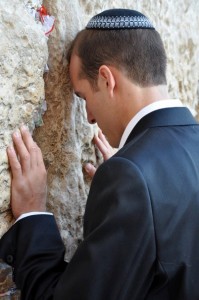Parshas Vayeshev: If You Can’t Go to Israel, Make Israel Come to You
Unfortunately, we don’t all live in Israel. Even many people who live in Israel travel outside of Israel. Yet, I find myself missing Israel all the time. One day we will make it back there; I hope we will even be able to live there.
One interesting thing I learned week was in a letter in the Igros Chazan Ish. A bachur asked if he should go to Israel and if the Chazon Ish thought going to Israel was the best thing to do. The Chazon Ish replied that it was best NOT to go to Israel. The best thing to do, he explained, was to remain in Rusia.
This is somewhat baffling. After all, I learned in seminary that it is much better to be in Eterz Yisroel than to be in hutzla aretz. It is best of all to live in Israel, unless for compelling reasons, like parnossa (livelihood) or your children’s education you must be elsewhere. So what on earth is the Chazon Ish saying here?
Rabbi Eisemann gave an explanation: The Chazon Ish was writing this letter over a hundred years ago. Times were different then. Israel was not the flourishing Jewish community it is now; it was a barren and hostile land, where Jews struggled just to survive and eke out a living. In Russia, however, the intellectual leaders of Judaism lived. There you could sit and learn not only under the likes of the Chazon Ish, but also under the Chofetz Chaim and other great rabbis. Sure, times might have been tough, but spiritually, Russian Jewry was very much alive.
You see, Israel is not just a physical place, it is a spiritual place, too. And although we cannot create it as a physical place in some other land, like Africa or Australia, we can create it as a spiritual place no matter where we are. In Russia, the Jews were working very hard to create Israel as a spiritual place there. And they were succeeding. That’s why the Chazon Ish didn’t want his students to leave. Leaving the spiritual land of Israel just to live in the physical land of Israel simply didn’t make sense.
And in this week’s parsha, we see that Yosef has done exactly the same thing. Here is a boy, 17 years old, and away from his family for the first time. How lonely he must have been! But not only hat, he really had no hope of ever returning to the land of Israel. How easy it would have been just to assimilate! He could have given up his Jewish ways and become fully Egyptian. Yet, he did not do this. Instead, he created his own spiritual land of Israel within himself. He followed the Torah *(yes, even though it had not yet been given) and stuck to it, even when it was very hard. Whether he was in slavery or in prison or in Pharoah’s court, he stuck with it.
We can also create our own land of Israel within ourselves. We can have our spiritual land of Israel wherever we go. As Rabbi Ben and I travel, I like to think this is what we do.
Shabbat Shalom!
Read more on Parshas Vayeishev: Joseph, Dreams, and Self-Fulfilling Prophecies
Read More







